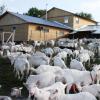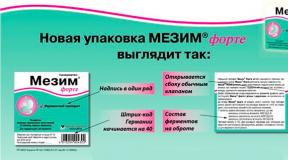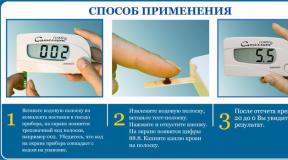Children with autism in adulthood. How long do autistic people live? Is it possible to get a disability
Azattyk: You are the grandmother of an autistic child. From your personal experience, this organization has also grown - NGO "Hand in Hand", which positions itself as an association of parents. Please tell us how you yourself encountered autism.
Sadykova: My grandson is 10, we were diagnosed at 2 years old. The daughter-in-law traveled to various countries in search of specialists and treatment. The husband sold an expensive car - that was enough for two months of staying in one of the reputable American clinics. From that trip, we were waiting for Daniyar to be completely healthy and already talking. However, we were disappointed. Today there is no drug treatment program for autism in the world, only a correctional one can help. It involves long-term work with the child on the basis of applied behavioral analysis.
We have prepared for it. It was necessary to import foreign techniques here, invite specialists, and undergo training ourselves. Alone, we would not have pulled it, so we advertised, we began to look for other parents. At first there were only 9 of us, now there is a whole network. I even had to close my business - we got involved in this business so that now we can be called specialists. Even in developed countries, autism began to be addressed only in the last 30 years. There, too, it all started with parent organizations - these are the most motivated people.
The first stage is self-flagellation. Everyone blames themselves, then each other. Mutual clarification of the reasons comes to the point that the husband's relatives suspect the genetic history of the wife in what happened, and the wife's family, on the contrary ...
Azattyk: You have been operating for almost five years. How many calls were there during this period?
Sadykova: In recent years, more attention has been paid to the topic of autism - information campaigns are being carried out, films are appearing, people have begun to talk about the problem. Accordingly, the attitude of people is changing, they began to visit us more and more actively. Now we are simultaneously working with 50 children, in 5 years we have received more than 300 parents. Everyone's stories are pretty much the same.
Azattyk: Where do these stories start?
Sadykova: First, parents notice that their child is lagging behind in development, that he is not like the rest. Already at this stage, they have a hard time. Further, the behavior of the child forces them to go to the doctors, in the end they receive a diagnosis - for many it takes years. After they learn that there is no quick cure, that it is a long rehabilitation process - again stress. But this is only the beginning of a long journey.
Azattyk: How soon do parents turn to specialists?
Sadykova: The first stage is self-flagellation. Everyone blames themselves, then each other. Mutual clarification of the reasons comes to the point that the husband's relatives suspect the genetic history of the wife in what happened, and the wife's family, on the contrary ...
People spend time visiting moldos, searching for cause-and-effect relationships in themselves, their sins, not only about their own, but also in different generations. Everyone, even in the most educated family, begins to delve into himself - what he could do that affected the child. Poor parents listen to many different suggestions from their relatives, including "goat tiidi" (evil eye). This, I will say personal experience, in a sense an inevitable experience, although it is usually not spoken about aloud.
Someone accepts the situation, works it out. And there are mothers who can go into depression for a year or two, losing precious time. But what older child becomes, the more difficult it is for him to catch up, to catch up with his peers. We are trying to convince: it is fundamentally important to pull yourself together, the state of an adult directly affects the child. The faster the parent learns and starts to deal with the child, the more chances he has to adapt to the situation.
Azattyk: What kind of difficulties await parents at first?
Sadykova: Since Soviet times, autism has been classified as a group of psychiatric diseases, that is, only a child psychiatrist can make a diagnosis. And there are nine such people throughout Kyrgyzstan - two in Osh, the other seven in Bishkek. This means that you need to repeatedly stand in long queues - it is impossible to draw a conclusion in one or two appointments, you need a long observation. Each such trip is accompanied by real tantrums - autistic people are extremely afraid of a new environment, strangers, and the atmosphere in our hospitals, let's say, is not the most inviting.
In itself, going to a psychiatrist is already an obstacle for parents. In our country, there is still an attitude that an appeal to a specialist of this kind a priori means something "not right." However, we strongly encourage parents to obtain an official diagnosis, although this is not easy.
Our colleagues from the regions complain: if parents turn to us on their own, then they have to go from house to house, yard, to look - parents, embarrassed by what the neighbors might say, hide such children.
Azattyk: What can be said about the situation in the regions?
Sadykova: In the provinces, it’s not just that there are simply no psychiatrists, there are not enough ordinary speech therapists, defectologists, and psychologists. When there are 5-6 children in a family, among whom there is an autistic child, parents can wave their hands, they say, okay, let one be like that. Our colleagues from the regions complain: if parents turn to us on their own, then they have to go from house to house, yard, to look - parents, embarrassed by what the neighbors might say, hide such children.
There are probably a lot of them in the city too. It all depends on the level of education, awareness and perseverance of the parent, for whom it is important to find a specialist, come to him and, most importantly, bring everything to the end. This is perhaps the most difficult.
Azattyk: How does the life of parents who have an autistic child change?
Sadykova: In such families, secondary autism often occurs - because of the behavior of the child, parents cannot go anywhere, they cannot leave him to anyone, they cannot invite anyone to their home. Moms are losing their professions - almost none of them can work full time, they are losing girlfriends and friends - there is no time for this. If the family is young, then all plans under construction collapse.
Only some families decide to have new children after the appearance of an autistic person in the family. A disabled child, and even more so with a mental disorder, is too difficult for the full development of the family. Not only the child is sick, but the whole family.
Azattyk: How does a child's diagnosis affect family relationships?
Sadykova: Basically, mothers remain face to face with the problem. They are not understood in the family - the environment believes that she cannot cope with the child, she is raising him incorrectly. Husbands leave the family, every second child with autism is raised by single mothers. We advise women, despite the tension, to keep the family, to involve all its members in work with the child. From my own experience, I can say that in complete families, children are more likely to be corrected, progress in behavior is faster - autistic people are especially sensitive and impressionable.
There was a case when a divorced mother was trained, worked with a child and achieved success. She took her ex-husband to our courses, explained that she was not a bad parent, but the child had a rather serious health condition. There are examples when subsequently families converged.
Azattyk: Are parents of autistic children prone to depression?
Sadykova: Quite. This can be seen already when they come to us for the first time, usually they are mothers. Describing their situation, they are always emotional. Especially if a mother alone fights with a child, her head is filled with how to feed, clothe, put on shoes ... No one can help her, no one can replace her. In addition, she constantly lacks sleep - the behavior of an autistic child is too heavy and exhausting.
Only some families decide to have new children after the appearance of an autistic person in the family ... Not only the child is sick, but the whole family.
In the early years, we worked only with children, then we realized that we need to involve mothers as well - today, working with them is primary for us. In our center, a child is taught skills based on special methods for adapting him to society. Mom is the first person who can contribute to this.
By learning and at the same time communicating with other mothers, women receive answers to questions, understand how to behave with a child. Against the backdrop of all this, she feels better. At the same time, he is improving. It is important for her to see that there are people like her, that it is hard for others, but they do not give up and continue to work. Many mothers subsequently become coaches, teach new ones, and participate in self-help groups.
Azattyk: When does such a mother rest?
Sadykova: At least once or twice a month, everyone needs a break - the opportunity to go to the hospital, get tested, walk around the city, go to the store or just sit down and stare at the ceiling. You need to take a break from time to time. Raising an autistic child is a lot of work. Where there is support in the form of a husband, a family, there is much less of it. Depression entangles those women in whose lives circumstances play a role: lack of money, lack of support, and these are the majority.
We do not have full-time employees in the organization, we are 5 people. Our practical priority is to teach mother how to work with a child. Our resources are enough for this minimum. Of course, in such institutions there should be specialists capable of providing psychological assistance to parents.
Azattyk: You mentioned mothers who become coaches. Apparently, autism is not only a diagnosis of their child, but also a new opportunity to advance in life. As for you, for example.
Sadykova: And there is. In one of the government agencies, I was recently dismissively thrown: "These moms." Some "mommies" have two diplomas with higher foreign education, are fluent in three languages, are graduates of conservatories - these are gifted and successful women. But due to the fact that they have special children, they are surrounded by the topic of autism. Their strength is enough not only for their children, but also to help others.
One of our mothers changed her qualifications - she graduated from AUCA in psychology. Every summer, she takes two or three months of training in expensive courses. The other is a teacher, she went to the second higher education as a speech therapist. Our mothers are already specialists, and in a sense more qualified, because they know the problem from the inside.
The higher the social status of the parents, the more stigma they have... It is more difficult to work with them, they need more time to accept the child's diagnosis.
Azattyk: You talk about active parents. Surely you can give polar examples?
Sadykova: There are those who call and ask if it is possible to “surrender the child”, perceive us as a receiver where you can get rid of heavy child. It is impossible to leave or surrender, we can only cooperate. Autistic children are a long, long job, the lion's share of which falls on their parents.
Azattyk: Some mothers and fathers do not want to admit that their child is autistic, justifying his behavior with character traits. Is it related to internal stigma?
Sadykova: The higher the social status of the parents, the more stigma they have. These are successful people, and they are especially sensitive to the fact that somewhere something goes wrong for them. They are more difficult to work with, they need more time to accept the diagnosis of the child. However, a positive trend can be observed. Autism does not choose which family to enter - the richest, the healthiest, the most different countries such children are born.
It should be noted that autism is especially rejected by grandparents, who do not want to admit at all that their grandson may be somehow different. They tend to overprotect the child, prevent the mother from properly dealing with the child.
Azattyk:Costs for an autistic and normal child - how different are they?
Sadykova: There are definitely more expenses for an autistic child. An hour of art therapy in the city costs 150 soms. Some cannot even pay this money. For a mom who lives on welfare, that's a big expense.
3,000 soms is the amount of the state benefit that disabled children receive. Not all autists are assigned a disability, only those with a severe form. In addition, those who receive a subsidy pass a commission every year. If an autistic child with a disability on the commission suddenly, for example, correctly says his name, the allowance will be taken away. Many mothers are very worried in front of these commissions.
Those who can afford it prefer not to apply for disability - they think that this is a humiliating stigma.
There are those who call and ask if it is possible to “surrender the child”.
Azattyk: We're talking mostly about autistic mothers. What about fathers?
Sadykova: Fathers have a harder time accepting their child's diagnosis. According to world statistics, among every 4 autistic people there are 3 boys and 1 girl. In our practice, out of 300 people, there were only 10-15 girls. There are many young families where this is the first or only child. And when a man's only son lags behind in development, he reacts to this especially painfully. In addition, unlike women, men cannot cry out, speak out, let their feelings out. The most significant contribution of the father lies in the financial support of the family, because then the mother can fully devote herself to teaching and working with the child.
April 2 is World Autism Awareness Day. On this day, information is spread around the world about the high proportion of children suffering from autism, the importance of early diagnosis,effective treatment methods and necessary support for families with children with autism.
You can contact the NGO "Hand in Hand" through the page in
Autism is one of the mental illnesses., which occurs develops as a result of disturbances in the functioning of the brain. Often the nature of such disorders causes a long course of this disease. For this reason, autism, the first signs of which are already noticeable in childhood, lasts throughout life, and patients have to put up with autistic disorders not only in childhood, but also in adulthood. An autistic adult has all the same difficulties in interacting with others, lack of emotions, stereotyped thinking, narrowness of interests, and other primary and secondary symptoms.
In adults, as well as in children, there are various forms autism, united in the general group of disorders of the autism spectrum. The degree of complexity of the disease depends on its symptoms, the nature of therapy and the degree of socialization of an autistic adult. The defining features of autism are the so-called triad:
- problems with social interaction
- impaired communication skills
- a narrow circle of interests of the individual and ritual behavior.
A characteristic feature of an adult autistic that distinguishes him from the rest is isolation. Regardless of the form of the disease, an adult with an autism spectrum conduct disorder finds it very difficult to establish social contacts and stay away from society throughout his life. Primary autism should be distinguished from secondary, or "autism involuntarily." Often people with pathologies of the speech or hearing apparatus, congenital dementia and other ailments are rejected by society. They withdraw into themselves, being outside of society. The fundamental difference between “autistic involuntarily” is that they experience acute discomfort due to their conflict with others, congenital autists are not interested in contact with others. These people, by their nature, cannot be included in society; ordinary communication is an irritant for them.
Another characteristic autism symptom – impaired communication skills, is a consequence of closed behavior. Typically, autistic children begin to speak later than their peers. The reason for this is not so much physical deviations, but the lack of the motive for communication itself. Such a child simply does not want to talk. Over time, most people learn an "unnecessary" speech skill. However, this situation leaves its mark in adult life. speech of an autistic adult different from speech healthy people its scarcity and underdevelopment.
The third most important symptom is the constancy of the autistic's inner world. Autistic adults have a strong need for consistency, in some cases it may resemble ritualism. This can manifest itself in strict observance of the established daily routine, gastronomic habits, systematization of personal belongings. Any violation of the usual way of life causes excitement, panic attacks or aggression.
In general, the character of an adult autistic can be described as closed, isolated, replete with constancy. Due to the inadmissibility of any changes in the existing way of life, autists have a very narrow circle of their own interests. The methodical repetition of the same thing often allows them to bring their favorite skill to perfection. This leads to the prevailing opinion that autism is characteristic of geniuses. In fact, real geniuses rarely come from autists. Moreover, very often autism is accompanied by mental retardation and behavioral abnormalities. In this case, the leading skill of an autistic adult will not be a virtuoso game of chess, but picking up a pyramid of children's cubes.
Autism itself is a general concept. In modern medicine, general autism has been divided into several areas:
- actually autism ( kanner syndrome)
- asperger's syndrome(mild form of autism)
- Rett syndrome(female neuropsychiatric disease)
- atypical (combined) autism
The most complex form of autism is kanner syndrome or autism itself. In people with Kanner's syndrome the full range of symptoms of autism is observed. Such a person is absolutely asocial, speech skills are weak or absent due to atrophy of the speech apparatus. The most important nervous structures are not developed, the intellect is at the level of moderate or severe mental retardation. An independent life of such a person is impossible. A person with Kanner's syndrome should be under constant supervision, in especially severe cases, isolation in a specialized medical facility is required.
A syndrome described by an eminent psychiatrist Hans Asperger, is a milder form of the disease. Despite tangible problems in communication and socialization, such people are fluent in speech and cognitive abilities. They can be closed, strange, somewhat awkward, but quite independent. People with Asperger's Syndrome often work and become full members of society.
Rett syndrome is an chronic disease transmitted only through the female line. The disease manifests itself not earlier than 1 year, after which the patient begins to rapidly regress. Therapy helps to slightly improve the overall picture. There are few adult women with Rett syndrome. The disease usually ends in death before the age of 25–30 years.
When it is not possible to identify a specific form of autism, one speaks of atypical autism, which is a combined set of different symptoms.
Of all these forms of autism, Asperger's syndrome and atypical autism are the most common.
Despite the fact that autism has been studied in detail since the first decades of the twentieth century, its causes have not yet been unraveled. Today, one of the main ones is the theory of gene mutation. Scientists have been able to identify some genes that affect the development of autism, but they have not been able to figure out how and why the mutation occurs.
Autism treatment should start at early age as soon as the disease is diagnosed. In this case, treatment is reduced to rehabilitation measures. Only in this case does the little autist have a chance to grow into a more or less independent adult. The primary role is played by therapy (behavioral, speech therapy). Regular visits to a psychotherapist are also recommended for adults with autism who have managed to adapt to society. Often, patients are prescribed medications (psychotropic and anticonvulsant substances). It can be antidepressants, antipsychotics, various stimulants. They help to stabilize the patient's condition, alleviate the symptoms, but the psychological disorder itself is not eradicated, and it accompanies the autistic person throughout his life.
The Invamama autism forum has a special section for adults with autism to communicate. This online forum allows adults with autism to discuss various issues that are relevant to them.
children with autism spectrum disorder (ASD). It is more difficult for such people to socialize in society, communicate with others, and in the most severe cases they cannot speak, read and write. People with ASD and their relatives told Snob how to live with a person who does not like touch, does not understand jokes, does not read emotions well, and why it is time to forget the stereotypes about autism“Kissing and touching makes me gag.”
Tatyana, 27 years old, Ufa:
As a child, I didn’t have any developmental delays: I read from the age of two, I speak normally. When I got a little older, I couldn’t sit through a lesson at school, I couldn’t write accurately with a pen and draw with paints, I constantly wanted to spin around my axis. Studying was easy, but sitting in a classroom/audience is still torture for me. I fell into hysterics from crowds and noise, could not bear to be touched and overly tight clothes.
Psychotherapists and psychologists gave stupid advice that even ordinary people do not help. They unanimously talked about the need for socialization, taught them to break themselves, get out of their comfort zone, analyze and correct their behavior. I didn't succeed. My dissimilarity to others became more and more distinct. By the age of 19, another problem appeared: all relationships with young people were like torture and ended quickly, I had no sexual desire. Psychologists again said: “Here you will meet that very one, you will love him, you will begin to trust him, you will want to.”
I found out that I have Asperger's syndrome by accident: a year ago I got into neurology with a nervous breakdown, where I was prescribed a consultation with a psychiatrist. He let me pass the tests, got hooked on what most people call “walking in the clouds”: I can go into myself out of the blue and not hear what the interlocutor is saying. I still don’t like to make eye contact and move away if they come too close to me.
One person close to me says that every day he meets much more inadequate people who buy iPhones on credit with their last money.
On the one hand, it became easier for me: all points over i are placed. On the other hand, not oncology, of course, but also a kind of sentence. I still can't stand the noise and crowds. Sometimes I can focus on a small detail for a long time. Well, I have a peculiar vision of the world: I can not see a building, a store, or something else at point-blank range, if I'm not looking for it purposefully. I have certain food addictions: I love chalk and charcoal, in my teens I still chewed erasers and expanded clay, washed, dried and ate, now there is no such need. Before I began to travel abroad often, I was terribly afraid to try something new, but now I experiment with pleasure. I don’t have obvious repetitions of actions, but it is vital for me that interior items, clothes are combined with each other in color and style.
Social contacts are one continuous difficulty. I can easily ask for directions or resolve an issue in a municipal institution, but I cannot be the first to talk to a person on informal topics. If they do, I’ll keep up the conversation and even get off for a normal one.
Working remotely is the only way out, in the team I can not. The main work is connected with geographic information systems. For the soul I write seo-articles and sell travel photos on stock.
Romantic relationships in the usual format are disgusting to me. Kisses and physiological smells cause an irrational gag reflex, I have already spoken about tactile contact. I also hate being forced to do something. I hate to obey, but I don’t want to subordinate anyone to myself either.
I have friends, albeit a little, they are quite ordinary people. One person close to me, a scientist, says that every day he meets much more inadequate people who buy iPhones on credit with their last money.
“The wife said she would not raise our son”
Sergey, 41 years old, Nakhodka:
Photo from personal archiveMy wife and I began to understand that something was wrong with Nikita when he was 2 years old: he did not speak, did not respond to his name, and he also had uncontrollable falls on the floor and tantrums, it was impossible to calm him down. We then lived and worked in the Philippines, we met tourists. Our friends had a girl of the same age, and they noticed that the children are very different. We thought it was just developmental delay, but friends suspected something else. Soon we returned to Russia, and in the provinces it is very difficult to make a diagnosis.
Neurologists at first also talked about developmental delay, and then they advised me to take Nikita to Vladivostok for an examination. There it turned out that the child has atypical autism without mental retardation: he has a non-verbal intelligence that can be reached. There are no specialists in our city, so the family should deal with this. Nikita at that time was 5 years and 7 months old.
When it became clear that with our child, my wife began to gradually move away from him, and a year and a half ago she said that she would not raise him. The last time we saw Mom was five months ago. Well, on his birthday, she called, asked to kiss Nikita on the cheek for her, although she lives nearby and could come.
Familiar coaches said that Nikita was not made for sports, because he did not understand the commands and did not follow them. But I'm a fan of my child and believed in him
Now I am raising my son alone. In the municipal rehabilitation center two years ago, psychologists asked me how to understand my child, how to get in touch with him. And the first thing they suggested when my wife left me was to send Nikita to a psycho-neurological boarding school. But he is the meaning of my life!
I had to give up permanent work. Previously, I was engaged in commercial video filming on a full-time basis, now I switched to a part-time job. I shoot and edit sometimes not only for money, but also by barter. Volunteer at a local charity for children with disabilities.
Now Nikita is 8 years old. He does not speak, cannot draw, read, write: fine motor skills are impaired. When he wants something, he takes my hand and shows it. We have a correctional school, but it is designed for mild forms of autism. Nikita is completely non-verbal, it is very difficult to teach him something.
But recently we have learned to roller skate. Familiar coaches said that Nikita was not made for sports, because he did not understand the commands and did not follow them. But I am a fan of my child and believed in him, so a week later he went.
Children with autism have moments of overload, when a lot of information accumulates in the head and it needs to be thrown out somehow. This erupts into an uncontrollable tantrum.
At first, he did not understand that he needed to push off the asphalt with his skate in order to go. Then I took my son by one hand and began to lead him along the dead sidewalks with pits and bumps. A couple of days later, something turned on in Nikita's head and, in order not to fall, he began to put his foot forward. Then we went out on a flat road, by the end of the first week the child drove more or less, and now he goes around all the bumps. We trained every day for 3-4 hours.
We'll be skating soon. Only it is necessary to agree with the coach so that the ice is free, because Nikita is afraid of a large crowd of people.
Children with autism have moments of overload, when a lot of information accumulates in the head and it needs to be thrown out somehow. This results in an uncontrollable hysteria that cannot be stopped. You can only be there and hold the child by the hand. Sometimes it happens on the street. People around me often do not understand what is happening, they come up, make comments, I try not to pay attention. One day a woman asked Nikita something on the playground. I said that the child would not answer her because he had atypical autism. "Is it contagious?" she asked. Many people think that all autists are geniuses, and when they find out what happened to Nikita, they ask if I let him solve the Rubik's cube. And I would teach him to recognize the danger, to understand what a traffic light and cars are. Nikita does not have a sense of fear, so he must be monitored 24 hours a day. I think that he should learn to understand the world around him, let alone speak.
“I felt like a stupid, useless creature”
Daniel, 17 years old, Moscow:
At the age of 3, I was diagnosed with autism, while my intellect is intact. I didn't have standard childhood interests, I didn't like fairy tales. At the age of 3, I learned to read, write and count - this, according to my mother, was almost my only hobby. My parents were not going to make me a child prodigy, I just liked doing it. Mom says that once in a psycho-neurological dispensary I almost smashed the whole office in search of a calculator. From the outside, it looked like I was poorly brought up.
I didn't go to school right away. I was refused a few, although they were private schools. At interviews, I went into myself and did not listen to what they were saying. As a result, I went to school at the age of 8, but immediately into the second grade. For the first few months, my mother sat with me in class. I could not remember that the teacher and other adults should be addressed as "you", it was difficult to understand social norms. I had no friends, I hardly talked to anyone.
By the age of 11, I began to slowly realize that I was not like my peers, and in my essays I wrote that I had heavy character. I began to ask my mother why I was not interested in what my classmates were interested in, and she said that I had autism. I didn't believe. I told her that I would prove that I am not autistic, and these are just flaws in my character that I will work on. Admitting my autism was very painful. By the age of 13, I nevertheless admitted this and fell into depression. I felt stupid, unhappy, useless creature. After talking with a psychotherapist, I felt a little better.
The girls treated me better, sometimes they even took pity on me and called other boys fools.
My self-esteem at a more or less normal level was supported by good studies. I let them write off: it seemed that because of this I had authority among my classmates. It wasn't that hard to study, it was hard to force myself to do homework because of my mental state.
When I moved to the fifth grade, "A" and "B" were combined into one. So I got not too good classmates. I was not only bullied, but bullied. They said “Kiss the wall!”, But it was difficult for me to refuse, or they asked me to dance cha-cha-cha. I thought I danced well, but in reality I danced badly, they laughed at me. I was very worried about bullying, because I lacked communication. The girls treated me better, sometimes they even took pity on me and called the other boys fools. The boys respected my intelligence, but considered me socially underdeveloped. I wanted to prove that this is not so.
My parents didn't let me play computer games, but my grandmother did. I felt relieved: others are playing, and so am I. At the age of 15, I realized that games would not give me anything, and I stopped playing them. I met people like me on VKontakte, but this brought temporary relief. Then I went into myself. Severe headaches prevented me from studying. I lay in bed for a while Science Center mental health and was in a sanatorium, after that he did not want to return to school, he went to college after the ninth grade, but dropped out. Now I'm finishing school as an external student. I became more or less "even", I study normally, only my mother is unhappy that I do not complete all the tasks. But there is more to my life than studying! Since childhood, I wanted to earn money. Now I buy things in bulk from the market and sell them via the Internet. After graduation, I want to enter the Faculty of Business and Business Administration.
I have a grudge against others and myself for what I had to go through when I found out about my diagnosis.
It also worries me that I can’t tell if my friend is real or fake. One treated me boorishly, did not appreciate the gifts, and because I did not have a girlfriend, he said that I would be alone all the time. I was offended, and I removed him from my friends. I tried to meet girls on the Internet and on the street, but then I stopped talking myself. It was not interesting. Once I had affection for a girl, but she used me: she slyly asked me for a gift, borrowed money and did not return it, I did not feel cared for when I was sick for a long time, she was not interested in my well-being.
I periodically have bouts of loneliness and thoughts of suicide, often nervous breakdowns. I take sedatives because I yell at relatives, I can yell at the whole house and I don’t control myself. Sometimes you want to cut your hands or drink. I resent others and myself for what I had to go through when I found out about my diagnosis. I also break down when they yell at me, consider me a child, when they underestimate my work on myself: my mother believes that all my changes are her merit. My parents did a lot for me, so my mother basically says. I don't have much of a relationship with her, unlike my dad. I’m angry with her because I don’t feel like a happy person: she did a lot for me until I was 11-12 years old, and then she made a lot of mistakes.
“I explained to my husband that crying is normal”
Julia, 44 years old, Moscow:
 Photo from personal archive
Photo from personal archive
Niko and I met five years ago in an online gaming community. I thought he was strange: he was not like the rest of my acquaintances, he spoke a lot, in detail, and somehow not like that. Once there was a scandal in the community, everyone quarreled, and Niko did not just remain calm, there was a feeling that a robot was among us: he took out people’s brains for three hours, bent his line in a completely even voice. If someone yelled or started to insult him, he pressed mute so as not to hear the interlocutor. It was a mesmerizing sight! Everyone behaved emotionally, and he behaved rationally, and in this way he resolved the conflict. You could say I fell in love with him then, in a way because of his autism. Then another conflict happened in the community: someone got offended at someone, difficulties began. And Niko always turned out to be “guilty”, because he did not understand the emotional reasoning of people, he answered the wrong way and not about that.
That's when something clicked in my head. I thought about autism, got into reading about it, and it helped me understand Nico's behavior. As a result, we began to communicate more often, and at some point I dragged him to be tested for autism. Tests showed the presence of ASD. Prior to this, Niko, as he himself says, considered himself an alien. He was always treated like a freak. He saw that people were building relationships, but he was not. When Niko realized that he has ASD and there are many such people, he began to watch lectures on the net in order to understand himself.
If it were his will, he would eat only rice with chicken for breakfast, lunch and dinner.
We began to communicate closer, not only on gaming, but also on personal topics, we met, started visiting each other and eventually got married. It is difficult for Niko to get used to the new, the new task, as it were, leads to a failure in the program, because when he needs to master a lot of new information, he freezes. When Niko came from Greece to Russia to get married, he fell into a stupor, because he did not know what to expect. He tried to apply Greek wedding models to ours, but it didn't work. I explained that we had a secular wedding, not like what he saw in Greece: no crowd of relatives, only two friends for moral support, we sign and leave. I see you don't understand. I went online, found a video from an ordinary Russian wedding and showed it to him. The panic has passed. At the registry office, the employee said that we should follow her into the hall and in the center, but she herself went not in the center, but to the side. Niko froze, not understanding how to go after all. Now, when we watch the video from our wedding, we roll with laughter: Niko goes as if to an execution and begins to smile only when he realizes that it's finally over.
Niko is inclined to act according to the scheme: as he is used to, so be it. Each morning begins with a specific sequence of activities, from brushing your teeth to petting cats. Everything about everything takes an hour and a half. If the scheme is violated, it is very difficult for him. Previously, he was completely inflexible, but gradually the situation is changing: communication with me taught Niko that the scheme must be adjusted to reality, and not vice versa. Niko has certain food addictions: if he had his way, he would eat only rice with chicken for breakfast, lunch and dinner. But again, a lot has changed in 5 years: before, new dishes came in with a creak, but now it’s worth turning away - and my kimchi is gone.
Niko does not read emotions and hints. If I take offense at him, he will never notice in his life. I must say straight out: I was offended by you because of something. And Niko will twist the scheme - he is very negotiable. And he, in turn, calmly, without aggression, pronounces when he does not like something.
In general, I am a sharp and quick-tempered person. When I yelled for the first time, Niko was in a panic: his wife was yelling, what to do about it?
We share household chores, but at some point everything happens for the first time. And now Niko had to clean the bathroom for the first time. He asked what was to be done there. I said: well, wash the sink, toilet, bath. He washed strictly according to the instructions: the sink, the toilet bowl, the bathtub - but he did not touch the floor, the mirror, etc.
I looked and asked: “Well, how did you get out? There you have cat litter lying on the floor!” He says, "You didn't say to mop the floor." Sometimes I just laugh to tears. I say: “Well, do you have your own head? Okay, let's change the scheme: look carefully at what is dirty, and remove it.
In general, I am a sharp and quick-tempered person. When I yelled for the first time, Niko was in a panic: his wife was yelling, what to do about it? I explained to him that yelling or crying sometimes is normal. People do this because they have kinks and emotions. That is, with Niko, I learned to say some things that I had never said in my life, and even to see them from the outside. After all, something that seems obvious to you may not be obvious to another person.
Niko is the nicest person, but completely different. And he greatly expanded my understanding of the world. Niko himself realized over the years that people rarely act according to the scheme, and the norm is a very loose concept, and as long as people are comfortable and they don’t interfere with anyone, these are all thousands of variants of normal.
Autism is a common developmental disorder and typically manifests itself during the first three years of a child's life. Very often we hear about childhood autism or early childhood autism. It is worth remembering, however, that children diagnosed on the autism spectrum become adults with autism. Children who show symptoms of autism at the age of 5-6 years are diagnosed - autistic autism.
However, in adults who behave strangely and have problems in social relationships, psychiatrists are very reluctant to recognize autism. The problems of adults, despite the lack of relevant research on autism, are trying to be justified in a different way and look for a different diagnosis. Often, adult autistics are considered eccentrics, people with an unusual type of thinking.
Symptoms of autism in adults
Autism is a mysterious disease, with a very complex and difficult diagnosis, with largely unknown causes. Autism is not a mental illness, as some people think. Autism Spectrum Disorders are nervous disorders caused biologically, in which psychological problems are of a secondary nature.
What is autism? It causes difficulties in perceiving the world, problems in social relationships, learning and communicating with others. Each autistic person may have symptoms of varying intensity.
Most often people with autism show disturbances of perception, differently feel a touch, differently perceive sounds and images. They may be hypersensitive to noise, smells, and light. They often show less sensitivity to pain.
Another way of seeing the world is that autistic people create their own inner world - a world that only they can understand.
The main problems of people with autism include:
- problems with the realization of connections and feelings;
- difficulty expressing one's emotions and interpreting the emotions expressed by others;
- inability to read non-verbal messages;
- communication problems;
- avoid contact with eyes;
- prefer the immutability of the environment, do not tolerate change.
people with autism have specific speech disorders. In extreme cases, autistic people do not speak at all or start talking very late. Words are understood only in the literal sense. They are not able to catch the meaning of jokes, allusions, irony, sarcasm, metaphor, which makes socialization very difficult.
Many people with autism speak in ways that are inappropriate to the context of the situation, despite the fact that the environment, in general, listens to them. Their words are uncolored or very formal. Some use stereotypical forms of communication or speak as if they were reading a manual. Autistic people have difficulty initiating conversations. Attach too great importance some words are overused in such a way that their language becomes stereotyped.
In childhood, problems often arise with the appropriate use of pronouns (I, he, you, we, you). While others exhibit pronunciation disorders, have incorrect intonation of voice, speak too fast or monotonously, emphasize words poorly, “swallow” sounds, whisper under their breath, etc.
In some people, autism spectrum disorders are manifested by obsessive interests, often very specific, the ability to mechanically remember certain information (for example, birthdays of famous people, car registration numbers, bus schedules).
For others, autism may manifest itself as a desire to order the world, to bring the entire environment to certain and unchanging patterns. Each "surprise", as a rule, causes fear and aggression.
Autism is also a lack of flexibility, stereotyped behavior patterns, impaired social interaction, difficulty adapting to standards, egocentrism, poor body language or sensory integration disorders.
It is difficult to standardize the characteristics of an adult with autism. However, it is important that the number of cases of autism is growing from year to year, and at the same time, many patients remain undiagnosed, if only because of the poor diagnosis of autism.
Rehabilitation of people with autism
Typically, autism spectrum disorders are diagnosed in preschool or early childhood. However, it happens that the symptoms of the disease are very mild and such a person lives, for example, with Asperger's syndrome until adulthood, learning about the disease very late or not knowing at all.

It is estimated that more than ⅓ of adults with Asperger's syndrome have never been diagnosed. Unconscious illness creates many problems for adult autistic people in social, family and professional life. They face discrimination, treated as unreasonable, arrogant, strange. To ensure a minimum level of a sense of security, they avoid contacts, prefer loneliness.
Against the background of disorders from autism, other mental problems may develop, for example, depression, mood disorders, excessive sensitivity. If left untreated, autism in adults often makes it difficult or even impossible to live independently. Autistic people do not know how to adequately express emotions, do not know how to think abstractly, and distinguishes them high degree voltage and low level interpersonal skills.
At the National Autism Society, as well as other organizations that provide care for patients with autism, patients can take part in rehabilitation classes that reduce anxiety and increase physical and mental fitness, increase concentration, teach engagement in public life. These are, in particular: theater classes, speech therapy, tailoring and tailoring classes, film therapy, hydrotherapy, music therapy.
Autism cannot be cured, but the sooner treatment is started, the better the results of treatment. In special schools, adolescents with autism are more likely to fulfill themselves in life. Classes in these schools include: social skills training, improving independence in actions, self-service, learning to plan activities.
Level functioning of adults with autism varies depending on the form of the disease. People with high-functioning autism or Asperger's Syndrome can do a good job of living in society - having a job, starting a family.
In some countries, special protected group apartments are created for adults with autism, in which patients can count on the help of permanent guardians, but at the same time this does not deprive them of the right to independence. Unfortunately, people with profound autistic disabilities, which are often associated with other illnesses like epilepsy or food allergies, are unable to live on their own.
Many adults with autism do not leave the house, being under the care of their loved ones. Unfortunately, some parents are overprotective of their sick children, thereby causing them even more harm.
Treatment of autism in adults
Autism is an incurable disease, but intensive and early treatment can correct a lot. Gives the best results behavioral therapy, which leads to changes in functioning, develops the ability to contact with others, learns to cope with actions in everyday life.
People with more severe forms of autism who are under the care of a psychiatrist may benefit from symptomatic pharmacotherapy. Only a doctor can determine which drugs and psychotropic substances a patient should take.
For some it will psychostimulant drugs to deal with impaired concentration. Others will benefit from serotonin and sertraline reuptake inhibitors, which improve mood, increase self-esteem, and reduce the desire for repetitive behavior.
With the help of propranolol, you can reduce the number of outbreaks of aggression. Risperidone, clozapine, olanzapine are used in the treatment of psychotic disorders: obsessive behavior and self-harm. In turn, buspirone is recommended in case of excessive activity and stereotyped movements.
Some patients require the appointment of antiepileptic drugs, mood stabilizers. Medications allow only symptomatic treatment. In order to improve the functioning of an autistic person in society, psychotherapy is needed.
It is worth remembering that a large group of people with mild autistic disorders are educated people. Among them there are even outstanding scientists and artists of various talents who represent the features of savants.
Olga Azova
- There is an opinion that the diagnosis of "autism" is made only in our country, but there is no such diagnosis abroad, is this true?
- No, it's not. ICD-10, which we all use, and DSM-5 is international classifications diseases. They, however, like us, began to write ASD (Autism Spectrum Disorder) more often. Autisms are different. In communication with parents, I use ASD more - it seems to sound softer, but in ordinary life I like “autism” more as a term, and it’s easier to understand what is at stake.
It seems to me that there are many questions from the field of tolerance in this. No two children are the same. Even our own children, who are very similar to us, are different. Naturally, no two people with autistic conditions are the same. But if there is no logic in anything, then we will always beat around the bush and will not begin to help, we will drown in demagogy.
I love terms that are clear, but with a specific child, we will still work individually.
Correspondence table between DSM-IV and ICD-10
| DSM IV | ICD-10 |
| 299.00 Autistic Disorder | F84.0 Childhood autism(Childhood Autism) |
| 299.80 Rett's Disorder | F84.2 Rett's Syndrome |
| 299.10 Disintegrative disorder childhood(Childhood Disintegrative Disorder) | F84.3 Childhood Disintegrative Disorder |
| 299.80 Asperger's Disorder | F84.5 Asperger's Syndrome |
| 299.80 Pervasive Developmental Disorder – not otherwise specified (PDD-NOS) (including Atypical Autism) |
F84.1 Atypical autism |
| F84.8 Other pervasive developmental disorders | |
| F84.9 Pervasive developmental disorders, unspecified | |
| - | F84.4 Overactive disorder associated with mental retardation and stereotyped movements |
That's what really is not abroad, but we still have. There, if a child with autism grows up, he remains with the same diagnosis. We can change the diagnosis to schizophrenia. But, fortunately, less and less.
- Why was almost nothing heard about autism before, and now it seems that an epidemic has set in?
– Autism was described in 1943, which means that there has been such a problem since at least this year. Another thing is that the world has changed since then. The statistics are growing inexorably in the direction of increasing the number of people diagnosed with autism. If we take one case of autism per 88 people (the data for the last two years is 1:65, some sources even give the figure 1:45), then this is already more than 1% of all living people, that is, the epidemiological threshold.
Scientists are constantly looking for new treatments
– Is there something new and encouraging in the study of autism today?
- You can’t tell about everything, let’s focus on several thematic areas. I will conditionally divide them into three groups: research on nutritional deficiencies aimed at studying the microbiota and the connection with autism, as well as research on the relationship between the level of development of motor skills and the treatment of autism. Moreover, different studies are being carried out in parallel in each direction.
The first direction is research related to nutritional deficiencies.
Thus, in a 2015 review of the Journal of the American Society of Nutrition on the nutritional status of individuals with ASD, there is evidence that a decrease in the level of folic acid, vitamins B6 and B12 can be considered as a biomarker for detecting ASD at an early stage of development.
Japanese scientists from the La Belle Vie laboratory in Tokyo were looking for the cause of autism in children and came to the conclusion that adding zinc to the diet of children can significantly reduce the risk of developing the disease. And other work by other researchers on the same topic has shown that even genetically altered cells associated with autism can respond positively to zinc intake.
And a study from the same vein reports findings on the causes and treatments of autism, namely that social interaction in children with ASD improves after supplementation with vitamin D.
In the second direction of intestinal microbiological research. Perhaps, these are the most extensive, one might say, even large-scale studies that are carried out in several countries at once. Last year, at the 2nd Congress on Autism, which was organized by our center, a report was presented by University of Delaware Professor Prasad Dhuryati.
The research data at that time were only partially published, that is, we received them first hand. A professor is creating a computer model of the human gut microbiota to establish a link between bacteria that live in the gut and autism. Dr. Prasad in his research confirms the idea, which other researchers have come up with, that problems with the intestines (in the microbiota) trigger the autism mechanism (the problem is in the microbiota genes themselves, and not in those that we inherit).
Previously, this problem was looked at exactly the opposite. That is, harmful substances penetrate from the gastrointestinal tract into the bloodstream, and then into the brain, causing autism. I can say that these are amazing, one might say, sensational studies. Professor Dhuryati is working on creating a computer model, which in turn will create a diagnostic system for selecting treatment options.
Holard Winter, head of the American Association of Pediatric Gastroenterology, also says that children with ASD have a fundamentally different microbiota from healthy ones. True, the studies that the doctor is talking about report that the frequency of gastrointestinal diseases is about the same as in healthy children.
But studies by geneticist Ruth Ann Luna, initiated by Autism speak, on the contrary, suggest that problems gastrointestinal tract more common in children with autism. Dr. Luna is also looking for new diagnostic tests with a subset of children whose microbiota could identify problems. This would also allow new ways to treat autism to be found.
At what age can autism be diagnosed?
– In Russia, only a psychiatrist has the right to make a diagnosis of ASD. Until recently, I said that psychiatric counseling is possible only from the age of three, and classes for autism should begin from a year and a half. But at the end of 2016, a large-scale reform of mental health care was launched in Moscow. Now, one-year-old babies will also be examined by a psychiatrist. A year and a half is the most favorable age for diagnosing autism. Then there is a lot to do.

Physical education and craft for a leap in social development
- Is it important to start exercising a child with autism earlier, including physical education?
- I just wanted to talk about the third direction of various studies. One of which, by the way, echoes the research of the second direction. The journal Immunology and Cell Biology recently published the results of a study that confirms that if parents start exercising with children at the very beginning of life, this can affect the change in the microbiota. She will become, so to speak, healthier.
So, Tomsk scientists are developing ways to treat autism with the help of specially selected exercise. For several years now, they have been studying the proteins that are produced in the muscles during physical education.
The results of these latest studies are very important for me personally, and because in our center we separate a number of procedures into a whole separate block in rehabilitation and empirically, for several years we can confirm that, in addition to proper motor skills, exercise therapy, massage, cerebellar stimulation , trampoline and climbing walls can improve communication, cognitive function and help with sensory and behavioral problems.
– So, do children with autism still have chances for adaptation?
– First, it is important to answer two questions:
- Whose data will we rely on: domestic or foreign.
- Does the child really have autism or not? (Is it autism?)
Domestic authors are very "strict" to children with autism and believe that more than half of children with autism need care in a hospital. Thus, many scientists believe that a significant part of patients after many years spent in the hospital develop signs of chronic schizophrenia, most children with autism remain disabled for life.
In our country, there is a tradition according to which autism belongs entirely to the field of psychiatry and is considered as a type of mental illness. Although it must be said that there is progress on this issue as well. More and more specialists attribute the problems of autism to neurology.
Foreign authors give more optimistic data: 1-2% of children with autism reach a normal level of intelligence development and do not differ from ordinary children, about 10% of children study and work, they normal level development of speech and social behavior.
About 20% of children, despite a significant lag in speech development, learn and adapt socially. Nevertheless, 70% of people with autism cannot live independently, they are forced to be supervised. Thus, in about 30% of people, the initial diagnosis is transformed.
But I want to say that I gave more or less official figures, but it seems to me that with the development of science, and most importantly, targeted assistance, things are even better.

For about a decade, the Israeli army has been recruiting people with autism into its ranks, they spend the whole working day studying data on a monitor from satellites. Features of the disease make it possible to realize their potential.
Concrete positive examples are also important. Of course, the names of well-known autists are already familiar to many: the American professor-zoologist Temple Grandin, a film was even made about her, the president of a large IT company, Sarah Miller, the artist and member of the Order of the British Empire, Stephen Wiltshire (he paints pictures from memory, conveying every little detail in detail , without any initial sketches), US physicist Jacob Barnet, who defended his Ph.D. thesis at the age of 15.
I am subscribed to several Russian bloggers who have been diagnosed with autism. What they write about is important for understanding autism and the behavior of autistic children.

I will also give examples from the experience of our center. Among children with autism, there are many children with absolute pitch. It is very important when there are additional reserves: music, drawing, craft. It's good that each of us has it. I often, following the Armenian proverb, repeat: “He who knows the craft sits hungry until noon, and the one who does not know until evening.”

Every school year gives us talented children. I'll only talk about two. Maya draws. In addition to the ability to draw, Maya also has absolute pitch. About Maya.

I think that this little girl is already an accomplished artist.

Maya's drawings
There is also Glory. His talent was discovered in the classroom with the teacher of our center. Slava studies at the school at the conservatory.

He quickly learns quite complex melodies from notes and sings almost without embarrassment. I am sure that musical abilities are part of his future profession.
As I said, now the percentage of children with autism is quite intelligibly called - 1%. Such a number of people cannot be left behind, therefore, medical research is being carried out in many countries, and recently the issues of social adaptation of people with autism have been especially raised.
Do not isolate, but accept into society
How to recognize autism?
– I will briefly list neurological markers and biomarkers of autism (including non-specific ones): communication disorders, stereotypes (repetitive movements, postures, vocal reactions), sensory disorders, behavioral disorders – hyperactivity – “field behavior”, vegetative disorders, metabolic and immune disorders processes, disturbances in the work of the gastrointestinal tract, epilepsy, etc. I somehow asked myself a question: I started listing and counting the signs of autism, I stopped when I counted 150.
– What is especially important in the correction of autism?
– Correction should be multistage. When discussing rehabilitation, the emphasis is always on treatment. nervous system. In fact, the coordinated work of all systems is important, both because the body is a living system, and because the functioning of a child with ASD is only productive when it is established and proper nutrition, and a toilet. The life of a living organism depends on the coordinated work of its organs and the conditions in which it is located.
Children with autism need to establish the basic processes of the body's vital functions: nutrition, respiration, excretion, metabolism, development, and so on.
You need to start with examinations and consultations with doctors: a neurologist, a gastroenterologist, an immunologist and others.
Next comes the priorities. If a child has serious behavioral problems, then the correction is based on behavioral analysis, which is paralleled with other types of rehabilitation. If there are strong sensory problems, then you need to start with creating sensory comfort.
Most often, in one child everything is disturbed at once: both problem behavior, and sensory features, and speech is absent. Therefore, I am always for a set of rehabilitation measures that will be aimed at restoring sensitivity, and will help to cope with all behavioral issues and speak. But the procedures themselves will also be different for each problem.

– When is it too late to change something in the adaptation of a child with autism? At what age can you say that everything, time is lost?
– There are so-called sensitive periods of development. All basic functions, skills and abilities are formed by puberty, by the same age they are determined with many final diagnoses, before that there can only be preliminary. Parents also make every effort to rehabilitate preschool age, well, maybe another period elementary school, then the vector changes. Nevertheless, we know that, for example, the vocal apparatus is formed by the end of puberty, and the full growth of the larynx by the age of 36.
I have real life examples. A child with multiple lesions was born into a family of artists. At the time of our acquaintance, the child was 18 years old. All sensitives passed, but the parents did not stop, their son continued to gain momentum in development, he painted very well.
Sensitive period of development (also found sensitive) - a period in a person's life that creates the most favorable conditions for the formation of certain psychological properties and types of behavior in him.
- What, by the way, to do with the upcoming puberty of a child with autism?
- This is a topic for a separate discussion. In our country, autism began to be actively dealt with about seven to eight years ago. Just those kids have grown up - the issues of puberty have become actual.
And an ordinary child has many questions about the changes that occur to him during this period, and a child with autism develops phobias from misunderstanding and fear of the new.
We will outline important topics: personal hygiene issues, self-defense, ethics in behavior when intimate topics arise, awareness of growing up and changes in the body in an accessible form, for example, using social stories, support from parents. Parents must keep their finger on the pulse.
- Autism: what should we be afraid of?
“Of course, there is nothing to be afraid of. When we created the center, and the main stream of non-speaking children, unexpectedly for us, turned out to be with ASD, then it was hard. It is precisely according to the profile of the violation that domestic science and practice offered little to such children. In fact, we are one of the few who undertook to actively solve the problem. We were trained in many countries, participated in conferences there and held them ourselves, brought methods and various devices.
Now it is important to learn how to translate this knowledge - this is the first thing. The most important thing is that at least the polyclinic medical staff, starting with the district nurse and pediatrician, had sufficient information about the manifestation of autism and informed parents in time.
And second, you need to understand that a child or adult with autism is a special person or person with special needs. It may be disharmonious in one and perfectly preserved or even outstanding in another. Outwardly being ordinary, have problems of social adaptation. It is important not to isolate such a person, but to accept them into society. I think this is the biggest problem right now. Having understood these people, even having already learned to help them, we need to give them the opportunity to learn to be like us.



















